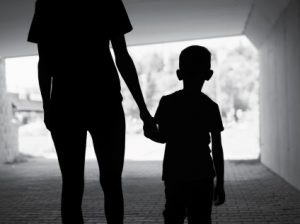When the Co-Parenting Issue is Safety
Safety is close to the bottom of Maslow’s hierarchy of needs. It is core to children’s ability to become resilient. It can also be a very difficult topic to address during a divorce. Here’s how the issue can arise during a discussion of parenting time arrangements:
Parent A: You want equal parenting time, but I’m worried sick about you being able to take care of the kids, especially at night and also after your softball games when you’d be driving them home after partying with your team.
Parent B: What are you talking about?
Parent A: Don’t pretend you don’t know what I mean. It’s how much you drink. You drink every night. I find you passed out in the chair in front of the TV half the time.
Parent B: I knew you’d pull this. Have I had a DWI? Lost my job? No! It’s you who has the problem, not me. Quit comparing me to your alcoholic dad. I think you just want the kids more to get more child support.
Parent A: This has nothing to do with child support, and you know it. Besides, you did get a DWI.
Parent B: If you’re gonna go back 15 years, then let’s talk about the time you passed out at your best friend’s wedding reception.
Parent A: Yeah, one time. And I basically quit drinking after that.
Parent B: Right, and now you have a panic attack any time I want a beer. Quit trying to control me.
Sound a bit familiar? Sound a bit challenging? Sound like the children in this family could easily find themselves in the middle of escalating parental conflict, if they aren’t already?
Substance abuse or misuse is best understood as a systemic issue in a family because it impacts everyone. And each family member has his or her story about it. Denial, minimalization and sometimes projection are very likely to be part of one parent’s story, especially if they are dealing with the disease of chemical dependency. Anxiety, frustration and co-dependence are very likely to be woven into the other side of the story. Each parent is likely to show anger, because anger is hardwired and is a protective response to vulnerability.
In addition, each parent is likely experiencing fear. The parent identified as having a problem may be fearful of consequences like losing access to their kids, or even their parental rights. The parent raising the issue is fearful of something bad happening to the kids that might have been prevented by speaking out and setting firm boundaries.
And what are the children’s stories? Might a skilled child-inclusive process be helpful?
As a neutral child and family specialist, I believe that a family law response to situations like this must have a laser- focus on what the children in the family need and deserve: the best safe relationship they can have with both parents. As a neutral, it is imperative to stay in a place of empathy and also be willing to calmly ask hard questions and to name the issues that arise, not with judgment but with clarity.
If a neutral professional has earned the trust of both parents, it is possible to engage with them in a voluntary process of creating a Confidential Safety Plan that is:
-
- designed to preserve parent-child attachment as much as possible; and
- identifies mutually agreed-upon “trust but verify” safety strategies, and
- specifies clear consequences and steps to be taken if a parent will not or is not able to honor their commitment to safety during parenting time as identified in the Safety Plan.
Because divorce decrees and Parenting Plans are online public documents, and given the sensitivity of issues addressed in a Safety Plan, it is important that the Safety Plan be filed with other confidential divorce documents where it can be accessed as needed, but will not be available to the public.
As with all out-of-court dispute resolution, the *Confidential Voluntary Safety Plan is not an appropriate option for all families, particularly if coercive control, domestic violence or child abuse are part of a family’s dynamic. But for those parents generally able to engage in good faith negotiation, this option can be a safe way for them to address a difficult issue with dignity, clarity and respect.
About the Author
Deborah Clemmensen has devoted her professional life to the well-being of  children and families.
children and families.
She is a licensed psychologist with decades of experience as a psychologist working with children, adolescents, families and adults. She been a Neutral Child and Family Specialist in family law for twenty-three years, participating in Collaborative Practice teams, traditional divorce processes and child-inclusive mediation, helping parents create Parenting Plans, We Statements and Confidential Collaborative Safety Plans.
Deborah has extensive experience as a consultant and trainer on child mental health issues and Collaborative Practice and has done research and published articles on a variety of topics.
Deborah has twice been co-President of the Collaborative Law Institute of Minnesota. She has served two terms on the CLI Board. She continues to participate on several committees of the Collaborative Law Institute of Minnesota, including the Training Committee and is currently a member of the Hague Convention Task Force of the International Academy of Collaborative Professionals.
As a Collaborative professional, Deborah coined the phrase, “keeping children at the center and out of the middle.” This principle guides her work with families in Collaborative Practice and family law.
Contact:
Deborah Clemmensen, M.Eq., Licensed Psychologist, Neutral Child and Family Specialist
deborah.clemmensen@gmail.com
www.deborahclemmensen.com
*Deb Clemmensen will be presenting “Confidential Voluntary Safety Plans” on November 9, 2023 from 9 AM – 11AM at the Neighborhood House at Wellstone Center | 179 Robie Street East, St. Paul, MN 55107 Hosted by the Collaborative Law Institute of Minnesota. Details and Registration https://collaborativelaw.org/events/

